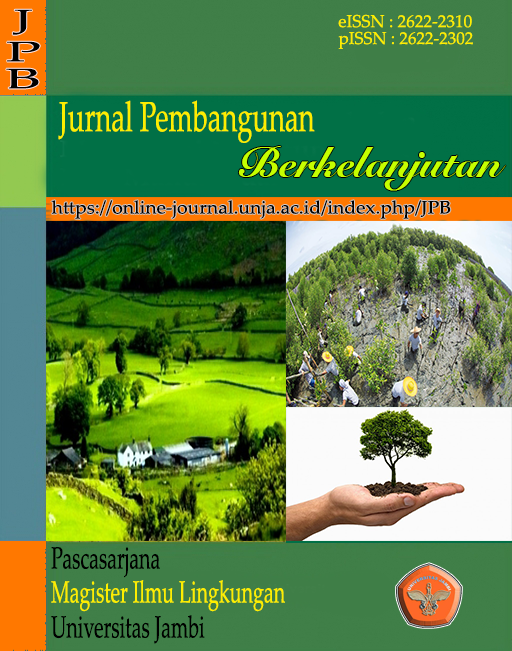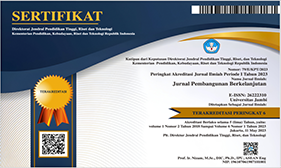Analisis Kebijakan Pencegahan Dan Pengendalian Kebakaran Hutan Dan Lahan Di Provinsi Jambi
DOI:
https://doi.org/10.22437/jpb.v1i2.5413Abstract
The results show that hotspots in Jambi Province in the last 5 (five years) (2011 - 2015) were mostly occurred in Tebo, Muaro Jambi and Sarolangun districts, and there were a close relationship between the enhancement of hotspots with acute respiratory infection people in Jambi Province. The regulations and policies implementationon forest and land fires was weak and needed improvement. The strategy of forest and land fire prevention and control policies are: Increasing the role of law and optimizing the support of central government in overcoming the karhutla disaster; Optimizing the role of regional heads in involving NGOs, communities, and universities in the forest and land fire prevention and control; Strengthen the spatial structuring functionality in the Spatial plans document as an effort to overcome spatial problems; Improving the legislative role in supervision, legislation and budgeting in the prevention and control of forest and land fire; Enforcing law enforcement in the act of violation to the laws and regulations provisions; Improving coordination among institutions and clarifying basic tasks and function of Regional Work Unitand also improving the quality of human resources to overcome the population growth rate and spatial problems.
Downloads

Downloads
Published
Versions
- 2018-08-16 (1)
- 2018-08-16 (1)
How to Cite
Issue
Section
License
1. Authors retain copyright and grant the journal right of first publication with the work simultaneously licensed under a Creative Commons Attribution 4.0 International License that allows others to share the work with an acknowledgement of the work's authorship and initial publication in this journal.
2. Authors are able to enter into separate, additional contractual arrangements for the non-exclusive distribution of the journal's published version of the work (e.g., post it to an institutional repository or publish it in a book), with an acknowledgement of its initial publication in this journal.
3. Authors are permitted and encouraged to post their work online (e.g., in institutional repositories or on their website) prior to and during the submission process, as it can lead to productive exchanges, as well as earlier and greater citation of published work (The Effect of Open Access)










